by Jenny Rose | Oct 20, 2016 | Connection & Community, Emotional Intelligence
Last week I talked about balance as a first step to understanding reciprocity. This week I’ll refine my focus and discuss the term itself.
A few years ago I was in my car, either listening to an audio book or the radio. I was in the off phase of a painful and confusing on and off relationship. Whoever I was listening to asked the question: “Is he crying about you?”

Photo by Ian Espinosa on Unsplash
This was a real Aha! moment for me, because I myself was crying all the time and the answer to the question was no. I didn’t even need to think about it. I’d given him all the power. He was calling the shots. I wanted to be with him but he didn’t want to be with me — at least for the moment.
That was my first introduction to reciprocity. It didn’t come with context, language or tools, but that question was like a piece of grit in my eye and it continues to pop up in all my relationships.
Before we discuss it further, let’s define reciprocity. A 3-second internet search yields: “Exchanging things with others for mutual benefit.” Good enough.
What I understand now is that reciprocity is at the core of healthy connection and relationship. Whether we’re conscious of it or not, it matters. I see the presence of reciprocity as an indicator of equality. No one has power over anyone else. The playing field is level. Giving and receiving happen in balance. We see the needs of others as being as important as our own. Reciprocity is the old Golden Rule in action.

Photo by Alona Kraft on Unsplash
It sounds so easy. In fact, it is easy. A reciprocal relationship is a delight. Trust and respect are present. Drama and trauma are absent. Both parties show up with an intention to create healthy connection. Communication is loving, respectful and honest. Both parties take responsibility for their words, actions and choices. When we walk away from a reciprocal interaction we feel valued, understood, respected and connected — and so does the other party.
Reciprocity in relationships cannot be achieved if both parties are not internally balanced, which is why I started with balance last week. This is like boundaries. If we can’t manage our own boundaries within ourselves, we won’t have effective boundaries with others. If we don’t function well enough to self-care, make choices that reflect our priorities, and control our time and energy in a balanced way, we can’t create healthy, reciprocal relationships.
“Exchanging things with others” is not limited to concrete things. In fact, a commercial exchange doesn’t imply reciprocity at all. Reciprocal exchange means he heats water for my tea while I’m in the shower and I dry his socks in the dryer instead of on the line because he likes them soft. Reciprocity implies an equal but not necessarily identical contribution of time, energy, expression and caring. In many ways, it’s a subtle kind of dance. It’s a gift of ourselves to others.
Reciprocity is flexible, affectionate, creative, curious and cooperative. Reciprocity says: “What can I do? What do you need? What would be useful? What would create connection? Reciprocity requires we allow ourselves to be seen and we’re open to receiving as well as giving. It requires communication about what we want and what we can give.
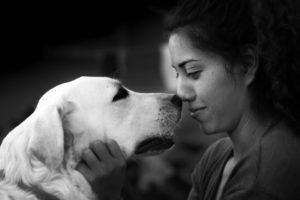
Photo by Kevin Quezada on Unsplash
Sadly, I think many people have never experienced a truly reciprocal relationship with a human being, although many of us have with animals. If that’s true of you, then there’s an important question to explore.
Is it you or is it them?
What’s been true for me is that it’s both. I’ve only lately begun to truly self-care and develop a sense of being valuable in the world. Most of my life has been defined by my sense of failure. What this means is that I’ve been a people pleaser, which is to say inauthentic and without good boundaries and balance. Naturally, that created problems, as well as attracting all kinds of people into my life who were also dysfunctional.
I have no power to change the behavior of others, but I can certainly learn and grow myself. Having language and context for aspects of relationship is enormously helpful. Being able to ask the question “Is he/she crying about me?” forces me to take a wider view and keep an eye on reciprocity. It empowers me.
It’s a great mistake to assume everyone wants reciprocity. I always forget that piece. I can’t quite get my head around the fact that some folks have no desire to be in a relationship like this, but I know it to be true. I can’t explore that effectively, having a great longing for it myself, so I’ll leave that aspect alone, except to note it’s not effective to make up stories or have expectations and assumptions about another’s desire or intention in this arena. Reciprocity doesn’t exist without mutual consent and a willingness to share power. The good news is after you run into the absence of reciprocity (for whatever reason) enough times, you stop trying to force it.
It’s also worth noting there are many different forms of relationship, and lack of reciprocity doesn’t mean there’s no value in the connection. Not at all. The quality of our relationships declare and define themselves pretty quickly, it’s just that sometimes we’re so focused on our determination that things be a certain way, we don’t pause to consider what is actually present — and what is not. Denial is a powerful thing, and we can stay stuck in it for years.
Reciprocity is a high standard. If you decide you want it, many possible relationships will be disqualified in the early stages. On the other hand, if you accept nothing less than reciprocity in close relationships, the ones you do find will be joyful and vibrant, and you won’t have to cry alone in the first place, let alone wonder if your partner is, too.
(This is the second post in a series on reciprocity. See also Parts 1, 3, and 4.)

Photo by Evan Kirby on Unsplash
All content on this site ©2016
Jennifer Rose
except where otherwise noted
by Jenny Rose | Jun 22, 2024 | Emotional Intelligence, Needs
In a recent conversation, someone asserted to me that ultimately everyone does what they want. I felt an immediate fury. That does not describe my life at all. I chewed on my outrage and resentment for a few weeks, simmering, until I decided to get over it and figure out why I was so hijacked.
I was immediately lost in the puckerbrush. Making choices about what we do and don’t do is intimately tied to needs and wants, and I have yet to be able to distinguish between the two once beyond the level of survival needs, or find any kind of clarity from someone else. Needs and wants are unpleasant territory I don’t want to explore. (See? There it is. I don’t want to. Yet I am, and I might need to.)
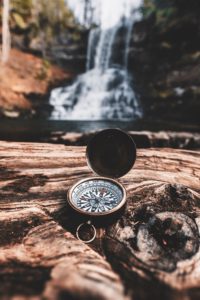
Photo by Bryan Minear on Unsplash
Then there’s the whole actions versus words aspect. People say they want things but don’t act accordingly. If we really want something, our behavior reflects it. If our behavior does not reflect our stated wants, we’re deceiving ourselves, or someone else, or both. I deeply distrust mixed messages. More unpleasant territory and old trauma.
Choice is in there, too. Choice is a big subject and a major theme in this blog. As I’ve mused on the statement ‘we all do what we want to do’ and made notes (you know I always make notes), I’ve wondered how we can compare a parent in some war-torn place attempting to keep their starving child alive another day with a wealthy person trying to decide if they want to fly their private plane to Paris for dinner or stay in and watch a movie in their in-home theater and have their chef prepare a seven-course meal. With wine, naturally.
One person has limited choices, all excruciating, to achieve continued survival for a few hours. The other has almost unlimited choices, all luxuries. How can I possibly compare the two? Can we say the parent trying to keep their child alive is doing what they want to do? Come on! Yet they do want to keep their child alive, right?
Perhaps it seems complicated and confusing because it’s complicated and confusing.
I wound up with a page full of notes, some sobering personal revelations, and a hairball.
On an internet search, I found articles pointing out the distinction between doing exactly what we want to do in any given moment (a toddler or a hedonist) and doing things we don’t want to do in service to an outcome we do want. That made sense to me.
If we focus on wanted outcomes rather than individual actions, we must have the ability to plan, look ahead, anticipate, and understand possible consequences of our actions. We also must attempt to predict the responses and reactions of the people around us to our actions, which means we have to understand something about emotional intelligence …

Photo by Manuel Sardo on Unsplash
… and now we’re back in the puckerbrush. I hate predictions. I don’t like leaps of faith. (I have a magnet on my fridge that says “Leap and the net will appear.” I don’t know why I keep it. It makes me mad every time I read it. Show me the warranty on that net. Show me the weight testing. Show me the damn net, in fact. Who will set it up when I leap? Are they paying attention or looking at their phone?) I trust my intuition, but I know I can be wrong. People are unpredictable. Life is unpredictable.
And yet we humans, including me, make choices all day long every day based on what we think will or might or could happen next. I’ve written about attachment to outcomes before. As I get older I’ve replaced a lot of my desired specific outcomes with simply wanting to know I did my best, regardless of outcomes. I may not like the outcome I get, but my integrity remains intact.
And then there are the people who don’t seem to understand actions and consequences in any kind of relationship. They choose what they choose in the moment and are hurt and/or outraged to discover the downstream consequences of that choice, especially in the context of many other choices. I observe this is a frequent divide along male/female lines. Women generally see everything as connected. Men generally see most things as discrete, in their own box. This is just one reason why I think “romantic” male/female relationships can be so devastating. We are often on different pages without knowing it.
If it’s true that we all do what we want in service to a desired outcome, what happens when my choices collide with yours? If you perceive me as blocking progress to your desired outcome you’re going to feel angry, and vice versa. We’re going to want each other to make different choices aligning with our personal desires. Most of the time, people won’t do that. We’re all attached to the outcomes we want.
A big piece of this for me is emotional labor, that hidden torrent winding through my life, sweeping away incalculable energy, time, and innocence. One of my priorities is healthy relationships. Close healthy relationships require time and attention; the ability to make choices for the good of the relationship rather than considering only our own wants and needs. This is an ongoing practice, not doing something we really don’t want to do once every six months and expecting applause. It means we have to face our own demons, learn to communicate clearly and honestly, negotiate, share power, and problem solve. It means boundaries and respect. It means reciprocity.
Having learned about reciprocity, I now prioritize my relationships to the degree the other does. I will not sign up to do all the emotional labor. I’m not interested in a close relationship like that. The price is too high. I’d rather put my energy into my relationship with myself. At least I appreciate my own efforts!
My conclusion about this ‘we all do what we want’ thing (gritted teeth – it still makes me mad), is it may be true if we consider our choices in the context of outcomes. I’ve made a lot of choices out of the clear knowledge that they were simply the right thing to do, too, choices that have been terrible for me, terrible in some of their consequences, yet ultimately still were the right thing for me to do. I had no outcome in mind. I don’t regret those kinds of choices, but they left permanent scars.

Photo by Cristian Newman on Unsplash
I want to blame others for all the time I’ve spent doing things I didn’t want to do, but it seems what we do and don’t do are entirely in our own hands, our own responsibility. Our lives are built on the choices we make, big and small, every hour of every day. If we don’t like our lives, we need to pay attention. Perhaps the useful question to ask ourselves if we hate what we’re doing at any given moment is, “Why am I doing this?” If we’re focused on a particular desired outcome, we may need to stop and think about whether our actions are effective in getting us there. Spending years of our lives desperately hoping and trying to reach an outcome and doing things we hate is not effective. I know this from personal experience. Our wants and needs change over time; what we once longed for may no longer be something we’re interested in. Sometimes we need to reality check ourselves. If we’ve been trying to get loved, for example, or please someone for a long period of time, it might be time to acknowledge our goal is not attainable or not worth attaining. Sometimes no matter how hard we work for an outcome it’s not achievable.
Then there’s the flip side: None of us do what we don’t want to do. That one is equally hard for me to swallow, but that’s a conversation for another day.
Questions:
- How much of each day do you spend doing things you don’t want to do? Why?
- What desired outcome(s) in your life requires you to do things you don’t want to do?
- Do you see your daily choices as isolated or part of a larger context attached to your wants and needs?
- Do you feel forced to labor emotionally? What would happen if you stopped?
- Who in your life reciprocates your level of emotional labor?
Leave a comment below!
To read my fiction, serially published free every week, go here: 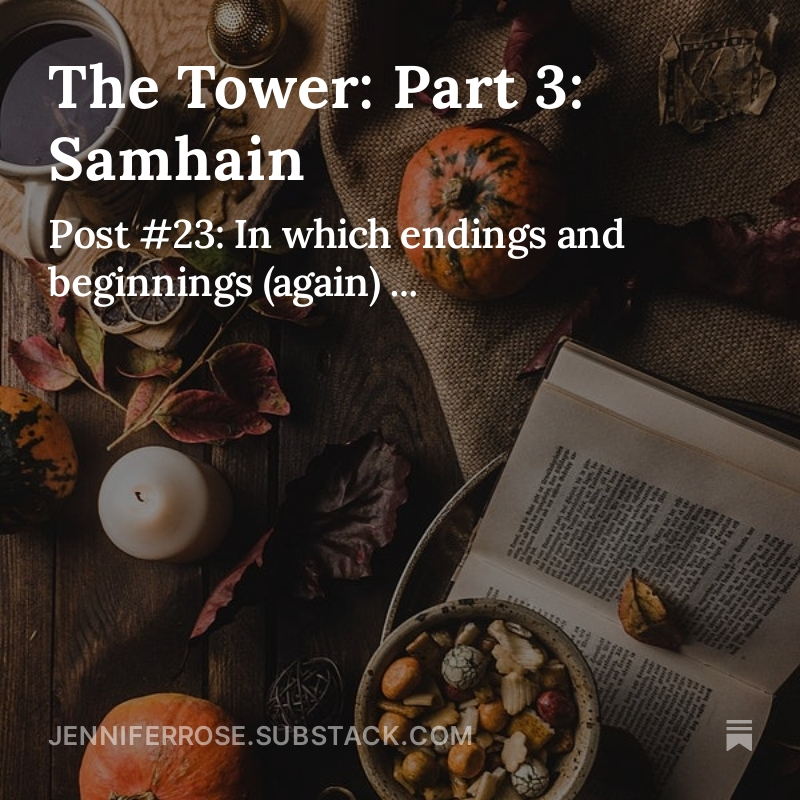
by Jenny Rose | Apr 13, 2024 | Connection & Community, Emotional Intelligence, Shadows
I have felt, for a period of some years and more frequently since 2016, that the planet would be better off without human beings. I’ve said it, I’ve thought it, and this is the first time I’ve written it. I would be happy to be the first in line, gladly give up my life in the certain knowledge that without us, Earth could heal, cleanse itself, and nurture all the countless species we have failed to notice, value, and cherish. Let the rape stop. Let the wide-scale poisoning stop. Let the brutality, suffering, stupidity, greed, and criminal disregard for others stop.

Photo by NASA on Unsplash
I freely admit to the pessimism and bitterness inherent in my view. I’m also aware of how paradoxical it is. I truly care about most people. Put a single human soul in my path, and I rarely fail to make a connection and feel some kind of empathy and kindness for them. I’ve spent my life caregiving, supporting, and teaching people, taking great joy in my contribution.
In my last few posts, starting with “The Locked Room,” I’ve thought a great deal about self-love and self-trust. It occurs to me my despair over human behavior as a whole must include me. My willingness to see us all wiped out includes a willingness to be wiped out myself. If other humans are capable of the atrocities happening all around us every day, so am I. If I want to see that dark potential destroyed, if I’d be glad of it, even, my self-love is seriously incomplete.
I’m not sure I’d call it self-hate. I don’t hate myself, you, the stranger on the street, or friends and family, but I hate what we are capable of. I hate what we can (and in some cases choose to) do. I believe some of us are willing to heal, grow, change, unite, and make better choices, but right now most of the human power in the world (as we understand power) lies in the hands of a few louts nobody seems to be able to overcome. Indeed, many cheer them on.
And that could be any of us, cheering them on. In the right context, with the right ideology, it could be any of us. I am too old to tell myself fairy stories about how I would never fill-in-the-blank. Easy to say as I listen to my sheets rotating in the washing machine, drink clean water from my tap, notice the old copper pipes rattling as the furnace comes on, and type on my laptop in my fully electrified, clean, intact house in a peaceful neighborhood on a Saturday morning with my feet propped up on my desk. I am sane. I am healthy. I am well-fed, housed, and employed. Most people do not have the luxuries I take for granted, the safety, the peace. People do terrible things out of terrible pain and dysfunction. I am not immune. None of us are. I’ve been fortunate, and that’s through nothing but luck.
A few weeks ago I read a piece by an author on Substack, Anna Kay, who writes a newsletter called The Hinterlands. I stumbled across her “A World Without a Heartbeat” by chance. She was not a writer I was familiar with, though I have since subscribed to her. She turned me inside out. I wept. I was comforted. I was awed and envious of her evident belief in human goodness. I was softened. I was challenged.
Most of all, I was challenged. As I read her words, I glimpsed a different frame, a frame of hope rather than bitterness.
I could not possibly paraphrase her words and I wouldn’t dare try to give you a synopsis. It’s not a long piece, and if you only follow one link out of the hundreds I’ve posted here in the last eight years, let this be the one. Please.

By Photoholgic on Unsplash
What moved me most was a world without humans would be a world without stories. A world without stories, a world without music, a world without art. A world without reverence and gratitude for nature. A world without human appreciation. Somehow, that seems like a terrible loss. I’m not sure why. Wouldn’t the planet be every bit as rich and beautiful if no one enjoyed it? Surely it would. Yet the loneliness of feeling unseen and unappreciated hurts because I’ve lived in the heart of that feeling.
The question I ask myself is am I willing to allow some or all of my bitterness to dissolve in order to deepen my ability to self-love? Bitterness is a heavy burden and there’s plenty in the world. Do I need or want to add to it? Is it useful?
It’s true we humans are capable of terrible things. Isn’t it also true we’re capable of remarkable courage, generosity, intelligence, creativity, and love?
Couldn’t we each make a list of human teachers, guides, beloved ones who have inspired us, protected us, and made us smile as well as a list of those who have done us wrong?
Our choice is which list to make, which to dwell on.
I’ve become deeply involved with the Substack community. I follow several other creatives simply because they inspire me. They make me feel better about the world, about life, about myself. They balance some of my despair and horror regarding the state of the world with beauty and hope. I’d like to introduce you to some of them:
Questions:
- Do you believe humans have value as a species? Why or why not?
- What human-driven activity gives you hope?
- Do you see humans as part of a healthy planet or an invasive species, wiping out all competitors?
Leave a comment below!
To read my fiction, serially published free every week, go here: 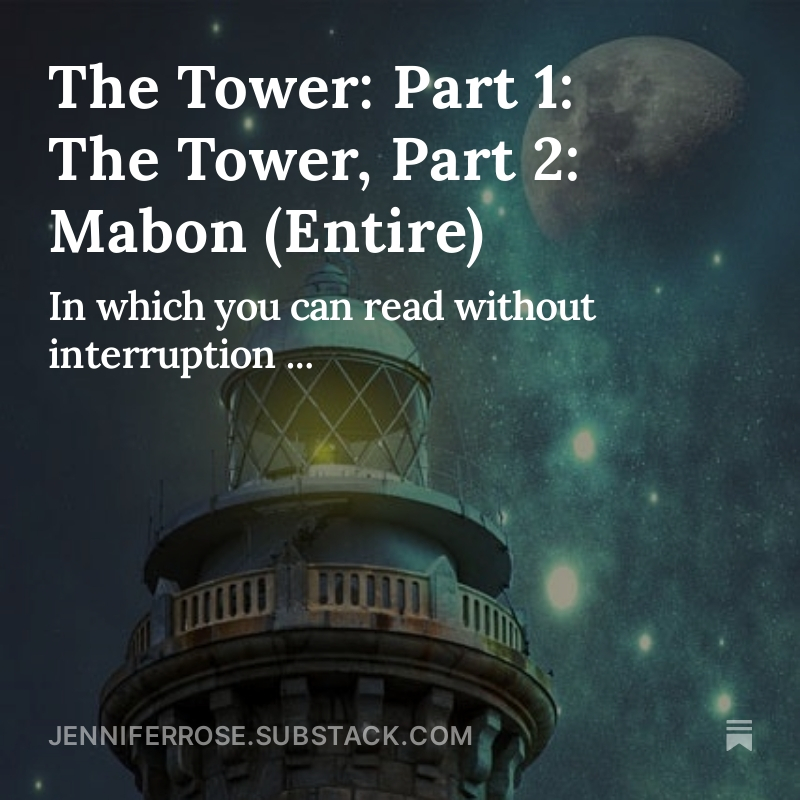
by Jenny Rose | Jan 6, 2024 | Aging, Connection & Community, Emotional Intelligence
I’ve been resting in this pause between solstice and the new year. Although I made a conscious choice to set aside everything I could, it was uncomfortable to let this blog lie fallow. On the other hand, I have not been inspired to do much more than manage day-to-day life.
I’m grateful to have moved into new holiday routines after decades of feeling imprisoned by obligation and duty to my fractured family and making Christmas meaningful and fun for my children. Gone are the days of huge, exhausting meals, tight schedules, trying desperately to please everyone at my own expense, spending much of the holidays in the car traveling between homes, and tired, overstimulated children. Not to mention tired, overstimulated me.
Now I focus on Yule, on the deep, introspective peace of winter and long nights, withdrawing into my cozy home. I engage in rituals I love: candles, simple decorating, making a double batch of Spritz cookies with my cookie press to share, and welcoming the return of the light.
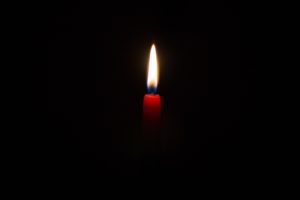
Photo by David Monje on Unsplash
This year we had a tropical storm the week before Christmas with high winds and torrential rains that flooded our town and, indeed, the whole state. We were without power for 48 hours. The lack of electric light (or electric anything else) fit in well with Yule, though we got very cold. We were also trapped; every bridge in the area was closed and the Kennebec River, which winds through our town, rose 30 feet, which is 15 feet above flood stage. Between flooding and downed trees, we were unable to leave our immediate neighborhood. Most businesses closed. The ones that stayed open (with generators) quickly ran out of everything. Our neighbors loaned us a butane camp stove so I could heat water for hot drinks.
As soon as the power was restored I ordered a propane camp stove.
Life rolls along, whether I’m posting or not.
This morning, as I lay in bed waking, I heard snow plows in our neighborhood. We’ve had more rain here, and clearly sometime during the night it had changed to snow. As I moved around the kitchen, watching the sky lighten and the snow fall, cooking breakfast, sipping my first cup of tea, enjoying glowing candles, my thoughts drifted.
Impossible to avoid end-of-year lists and reviews and new year resolutions, hopes and fears this time of year. I generally am uninterested. I’m content to let the old year diminish and recede, particularly this one, which was especially difficult personally. I don’t enjoy new year resolutions, mine or anyone else’s. None of us know what the new year will bring and many of us look ahead with some trepidation and anxiety; I don’t need to exacerbate mine by making or consuming predictions. What will come will come and we’ll have to cope with it.
I will be 60 this month. Impossible. Incredible. For the first time in my life, I’m daunted by a birthday. Generally, I hardly notice them. I’m annoyed by my discomfort this year. I’m determined not to focus on it, but I keep seeing it out of the corner of my eye.
I asked myself a question as I moved around the kitchen this morning. If I could have anything for my birthday, if I could make one intention for the year ahead, what would it be?
It’s easier to think about what we don’t want, isn’t it? I reviewed my current challenges and anxieties, watching the pewter sky and the snow becoming less rain and more flakes as the temperature dropped. I flipped the bacon, gave the cats another half a can of food so they would get out from under my feet. The pipes in the radiators creaked and popped as the furnace turned on.
The word ‘simplicity’ came into my mind. I turned it over. I thought about what brings me joy. I thought about candles, reading a good book, the warmth and weight of a cat in my lap. I thought about a cup of hot tea. I thought about music, the rhythm of swimming, being with people I love and trust. Sitting in my comfortable chair with my weighted blanket, just breathing. Peace. Stillness. Light and shadow. Long nights. My warm bed. Hot showers. Solitude. Privacy. I thought about my current laptop background. A perfect illustration of simplicity:
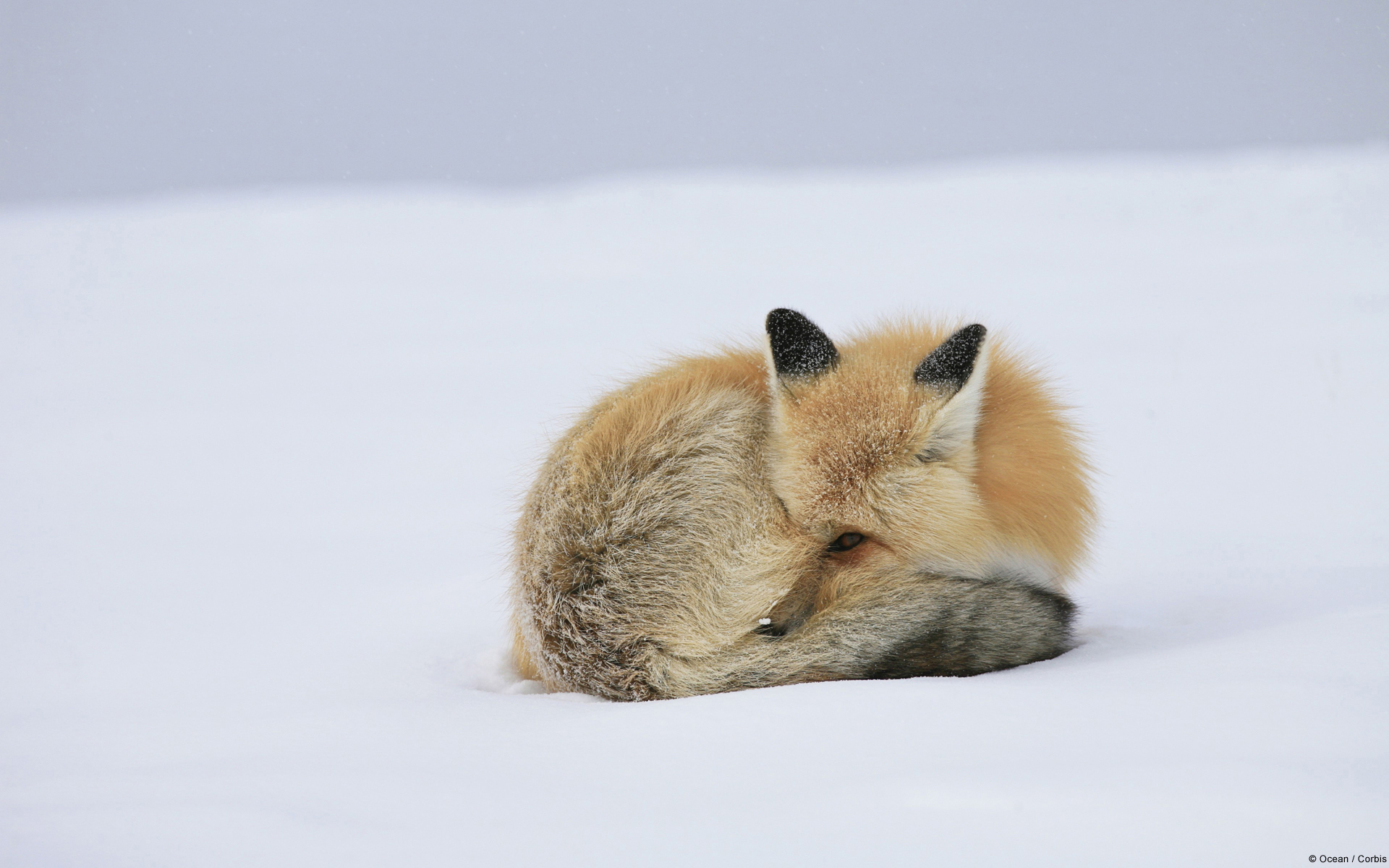
I thought about what I don’t want. The endless complications of being nice, pleasing others, fawning to stave off violence and pain. Clutter. Bright lights, noise, demands. Busyness. Obligation. Duty. Feeling hounded, imprisoned, criticized, judged by myself and others. Too much talk. Racing the clock.
I thought about boundaries. Inconsistent boundaries, badly maintained, easily breached; and strong, smooth, tough boundaries, well-maintained and consistent. Unapologetic.
I thought about the simplicity of ‘No’ and the complications of ‘No’ followed by five minutes of cringing apology and justification, or the inability to say ‘No’ at all.
‘Simplicity’, I decided, named my longing.
When I consider the first 60 years of my life I mostly see the unending labor and anguish of caring for others, the years of trying and trying, as only a woman who loves can understand, to love them all. To please them. To make them happy and healthy. It was complicated. Noisy. Chaotic. Bloody. Painful. Extremely expensive in terms of my own health and happiness.
And frequently thankless. Rarely reciprocated.
That’s what I thought I was for, to live that way. I was taught that was what I was for.
In the last few months I came across a little mantra which has become something like a prayer permanently nestled in my consciousness:
I am enough.
I choose my life.
I trust myself.
Sixty is a nice, round number. How would it be if I chose to begin again, now, with just myself; my own self-care, which is simple and easy? What if I chose to embrace the discomfort and power of maintaining strong, consistent boundaries and let people react to them however they need to, making their feelings none of my business? What if I stopped apologizing for what I need because it’s not what they need or understand or want?
What if I made up my mind to choose the simplest thing, the most direct, honest answer, the clearest communication in any given situation? What if I stood up for myself the way I stand up so readily for others?
Maybe 60 years of responsibility for everyone around me is enough and I could choose to spend the next 60 years (!) being responsible only for myself.
What a relief!
I don’t tell myself living more simply will be easy. It won’t. Boundaries, (I’m never allowed to forget) are invariably heavily challenged and battered by those who have the most to gain by us having none. Maintaining boundaries means conflict, a thing I dread and have always avoided as much as possible. It means emotional manipulation, the most painful (and successful) weapon those close to me can wield against me. It means Failing To Please. It means controlling my natural empathy, focusing it inward rather than outward, being more present with my own internal state rather than that of others.
Simplicity. What a lovely intention.

Photo by Das Sasha on Unsplash
Here’s a deep winter wish for you all:
May You Grow Still Enough
May you grow still enough to hear the small noises earth makes in preparing for the long sleep of winter, so that you yourself may grow calm and grounded deep within.
May you grow still enough to hear the trickling of water seeping into the ground, so that your soul may be softened and healed, and guided in its flow.
May you grow still enough to hear the splintering of starlight in the winter sky and the roar at earth’s fiery core.
May you grow still enough to hear the stir of a single snowflake in the air, so that your inner silence may turn into hushed expectation.
by Brother David Steindl-Rast
Questions:
- How did you spend your holidays? Did you spend them the way you wanted to or the way you had to?
- How do you feel about new year’s resolutions?
- What single word names your deepest longing?
- In your view, how do self-care and selfishness differ?
Leave a comment below!
To read my fiction, serially published free every week, go here: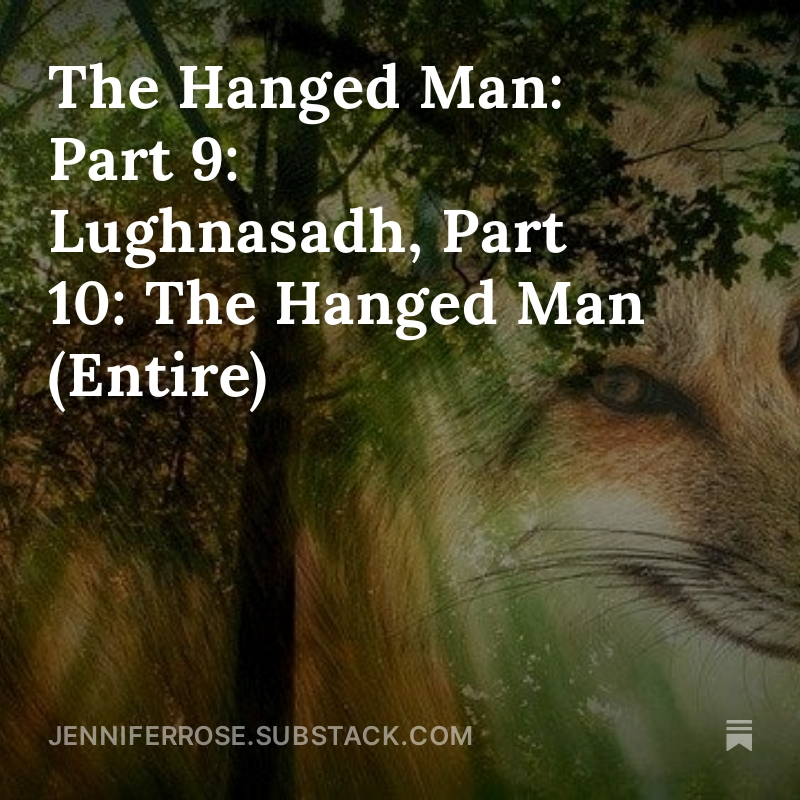
by Jenny Rose | Sep 11, 2022 | Choice, Power
Probably every child is told we all have to do things we don’t want to do.

Photo by Cristina Gottardi on Unsplash
Children are concrete, and I was no exception. When I heard we all have to do things we don’t want to do, I thought it meant that’s what life was supposed to be about, a kind of slavery to all those things we don’t want to do. No one talked to me about balance, or doing the things we do want to do.
It made life seem like an unhappy business, years and years of unending duty, responsibility, and doing what I didn’t want to do. No recess. Or maybe what I really wanted to do was bad and wrong? Maybe I should want to do what I didn’t want to do. I wasn’t sure. A part of me went underground. I didn’t want anyone to know how bad I was, how flawed. I worked hard at the things I didn’t want to do and hid the things I did want to do, in case they were wrong.
But I couldn’t conceal the feeling of wanting and not wanting from myself. I used to make hidey holes in whatever house we were living in at the time and go to ground with a book, but I always felt guilty. I wanted to read. Doing what I wanted to do was bad. I should have been helping my mom do all the things she didn’t want to do.
The pronouncement that we all have to do things we don’t want to do is stated as a Cosmic Truth, especially as an adult tells it to a child. It’s loaded with feelings and experience a child can’t possibly understand, but the subtext was clear to me:
Life is not much fun.
I can’t resist picking apart Cosmic Truths as an adult, and as I think about this one it occurs to me it really has to do with personal power more than wanting or not wanting. It’s not framed in terms of personal power because our emotional intelligence is so low. Making choices based on whether we want to do something or not is childish. Power resides in the act of choice, not in the wanting or not wanting.
Steering our lives solely by our desires is hedonism, a belief that satisfaction of desires is the purpose of life. Desire, though, is so shallow, so fleeting. And it’s never permanently satisfied. No matter how well and pleasurably we’ve eaten, we’ll be hungry again. Desire is a treadmill we can never get off.
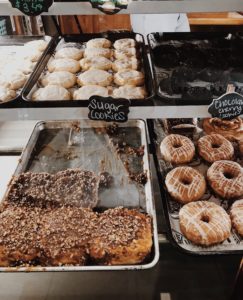
This is not to say we shouldn’t ever choose something we want or say no to something we don’t want, but our desire is easily manipulated. That’s why advertising works. If we can be easily manipulated, we’re not standing in our power. Addiction is based, at least in the beginning, on wanting and not wanting.
A more useful question than What do I want to do? is What would be the most powerful thing to do? We might want to eat a carton of ice cream, but a walk feeds our health, well-being, and thus personal power much better. After all, one carton of ice cream leads nowhere but to another. Personal power can lead us to joy and experience a carton of ice cream never dreamed of.
- If we don’t choose to do difficult, frightening, or new things, we’ll never grow.
- If we don’t choose to take care of our bodies, they won’t function well.
- If we don’t choose to be self-sufficient and resilient, we’ll be dependent.
- If we don’t choose to learn anything, we’ll remain ignorant.
- If we don’t choose to plan ahead, prepare, or manage consequences, we diminish our choices, waste resource, and weaken the contribution we’re capable of making.
- If we don’t choose the responsibility of commitment and making choices, someone else will make our choices for us.
And so on.
I’m changing the frame. I’m less interested in what I want and what I don’t want and more interested in how my choices affect my power, and the power of those around me. I’m willing to do what I don’t want to do if it’s a step on a road leading to integrity, power, healthy relationship, or anything else important to me. At the same time, I can exercise my right to say no to things that won’t take me where I want to go.
It’s about power, not desire. Any three-year-old can want and not want. It takes an adult to manage a healthy balance of personal power.
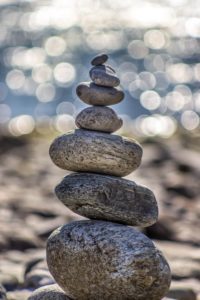
Photo by Deniz Altindas on Unsplash

















